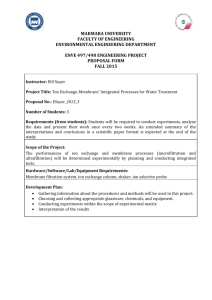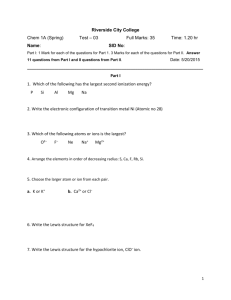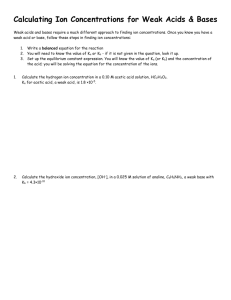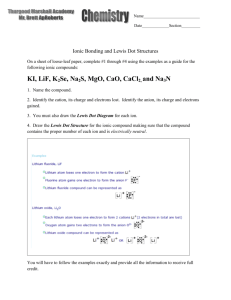Coordination Compounds
advertisement
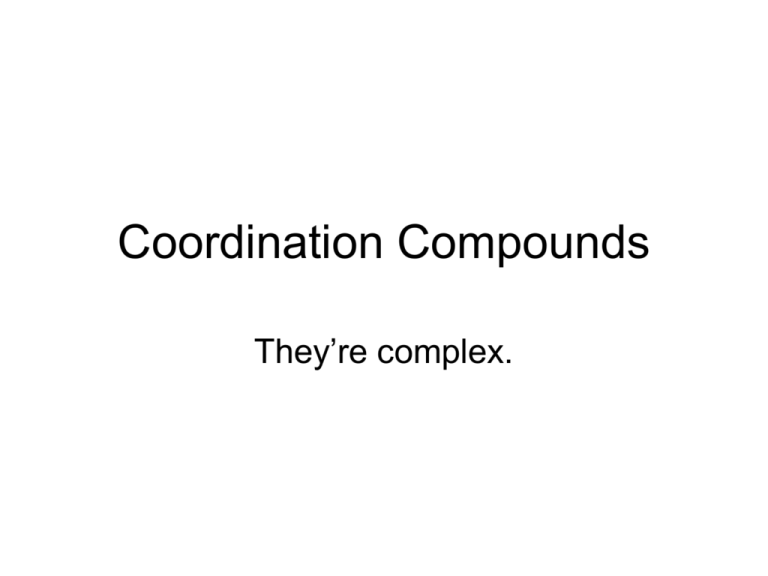
Coordination Compounds They’re complex. • A coordination compound is the result of a Lewis acid-base reaction. M+a + Lewis Acid x :L-b [MLx]a-xb Lewis Base Complex Ion A coordination compound is an ionic compound that includes a complex ion. For example “Ligand” =“tied on” Cu+2 + 4:NH3 [Cu(NH3)4] +2 Lewis Acid Lewis Base Complex Ion The complex ion is a metal ion with ligands “tied on” to it. For example Cu+2 +SO4-2 + 4:NH3 [Cu(NH3)4]SO4 • The same complex ion as part of a coordination compound: tetraamminecopper (II) sulfate For example You have seen that the anhydrous copper (II) ion is colorless. In an aqueous system: [Cu(H2O)6]+2 + 4:NH3 [Cu(NH3)4H2O] +2 …the copper (II) ion is already part of a complex Remember hydrates? • CuSO4•5H2O Remember hydrates? • CuSO4•5H2O • Or is it…. [Cu(H2O:)5]SO4? pentaaquocopper (II) sulfate We use brackets around a complex ion. [complex ion] • A coordination compound has a complex ion (cation, anion or both!) Naming a coordination compound • Name the (+) ion first. • Name (-) ion • How do we name the complex ion? • Start with the metal—state the oxidation number. • Use Latin roots and –ate ending when it is an anion (- ion) . • Prefixes (with numerical prefixes) show ligands. Many ligands end in –o-. • Special names when used as a ligand Special names when used as a ligand • • • • • • H2O– aquoNH3– ammineCN- --cyanoCO --carbonylOH- --hydroxoChloro- iodo- bromo- etc. • When using (en) or (EDTA), numerical prefixes include: bis- for 2, tris- for 3, tetrakis- for 4 • Different ligands are listed in alphabetical order (regardless of numerical prefix)
